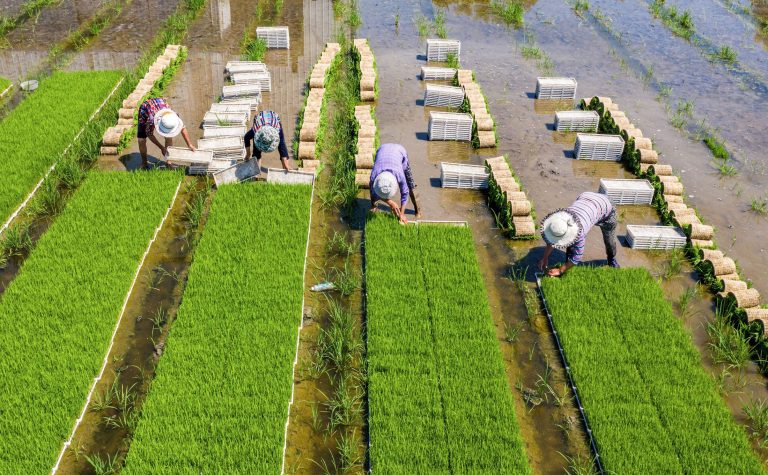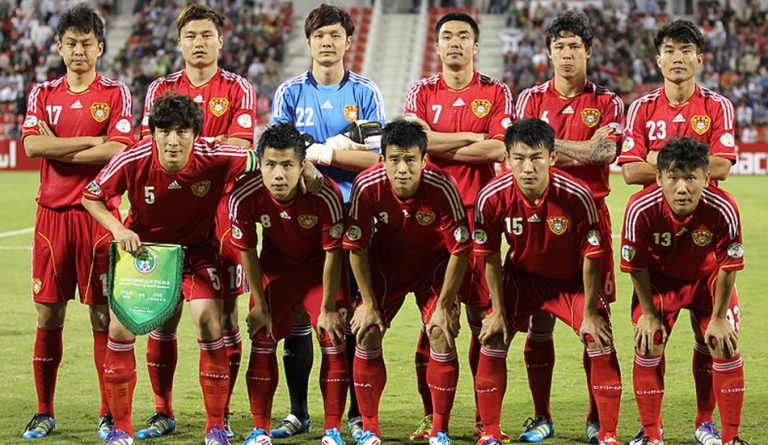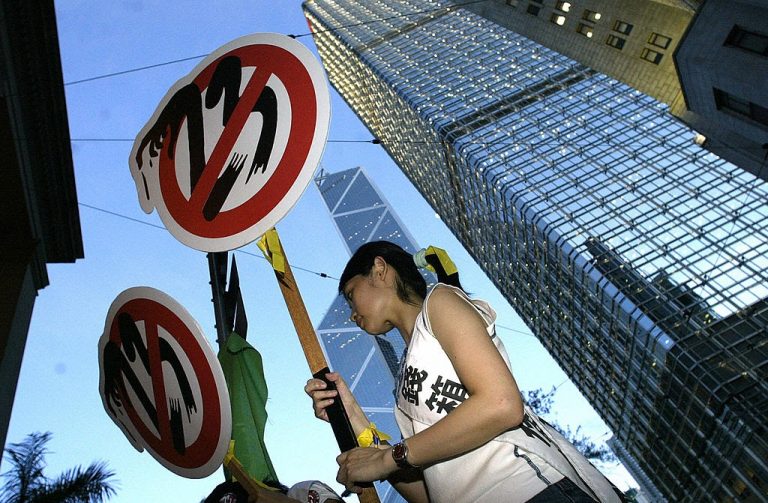Guangdong Province is one of the wealthiest in China, with 100 million people and the center of Chinese manufacturing and trade. Its Pearl River Delta comprises a megacity of around 60 million people from all around the country, including the cities of Guangzhou (the provincial seat), Shenzhen, which was a fishing village 30 years ago, and Hong Kong.
Following the Chinese Communist Party’s recent propaganda trend of glorifying rural life and developing low-tier (i.e. small) cities, the Guangdong provincial Party committee in February announced a “three-year action plan” to send 300,000 of the province’s youth to the countryside by 2025.
This includes recruiting urban professionals to resettle in rural areas, as well as encouraging youth who emigrated from the countryside to cities to return to their hometowns.
- Residents in Locked-Down Xi’an Made to Say ‘Thank You, Communist Party’ When Receiving Food
- China Launches 3-Year Plan to Expand Xinjiang-style ‘One Police Station for Every Village’ Program to Rest of Country
The yearly aims of the plan are to send 10,000 Guangdong college graduates to less-developed regions of the province, as well as 1,000 teams of volunteers, 1,000 young entrepreneurs, and to mobilize at least 30,000 “rural youth living in the city to return to the countryside.”
Meanwhile, 30,000 “rural-based youth” are to be trained every year of the plan to engage in digital commerce, farming, and cooperatives — the last being organizations created under the communist planned economy of the Mao Zedong era.
Success
You are now signed up for our newsletter
Success
Check your email to complete sign up
Chinese netizens and commentators immediately likened the plan to Mao’s “down to the countryside” campaign launched in the latter part of the Cultural Revolution, when millions of educated urban youth were “sent-down” to undeveloped parts of the country. Most of them lingered there without contributing to those areas or being able to develop their own futures until 1977, when Mao was dead and the government reestablished the national college exams.
“In recent years China has been encouraging young people to go (or return) to the countryside. The state media are filled with success stories of young people going into agriculture or starting business in the countryside, some bordering on cheap, cringeworthy romanticism,” human rights website China Change observes in an April 7 analysis piece.
It also notes that the majority of Chinese left the countryside for cities precisely so as to not be stuck in rural poverty, which is further enforced by the Communist Party’s hukou residential system, which effectively treats rural Chinese as second-class citizens.
Moreover, government efforts to revitalize the countryside have already been tried and largely flopped, as revealed by Mao’s granddaughter Kong Dongmei. She said that of the 11 million people who went or returned to the countryside to do business or find work, the majority ended up heading back to urban areas.
For the CCP, getting Chinese to return to the countryside (China has been an agrarian nation for thousands of years) likely has less to do with a sincere effort to “revitalize” provincial backwaters and rather to deal with mounting social and economic crisis.
China Change notes that since 2018, the country’s National Bureau of Statistics has published monthly unemployments rates showing that joblessness for young urban workers aged 16-24 had risen from 11 percent since early 2018 to almost 20 percent today.
“Combining the myriad unemployment stories posted on social media, and anecdotes from college campuses with our justified distrust of Chinese government statistics, we believe that the youth unemployment rate is far higher,” the article writes.
Even as more Chinese receive college education, they often cannot find work after graduation, with the phrase “from graduation straight to unemployment” (a pun in Chinese) becoming more popular.
During the Cultural Revolution, Mao Zedong sent millions of youth down to the countryside as a means of handling the Red Guards who had helped him attack his political enemies in the Communist Party leadership, but had become a liability when they started fighting amongst each other and even the regular army.
Likewise, legions of restless youth could become an existential threat to the CCP if they are left jobless in the cities, as seen in the late 2022 “blank paper” protests, when tens of thousands of people came out to protest the ruinous “zero-COVID” lockdowns; many even called for the end of communist rule.














